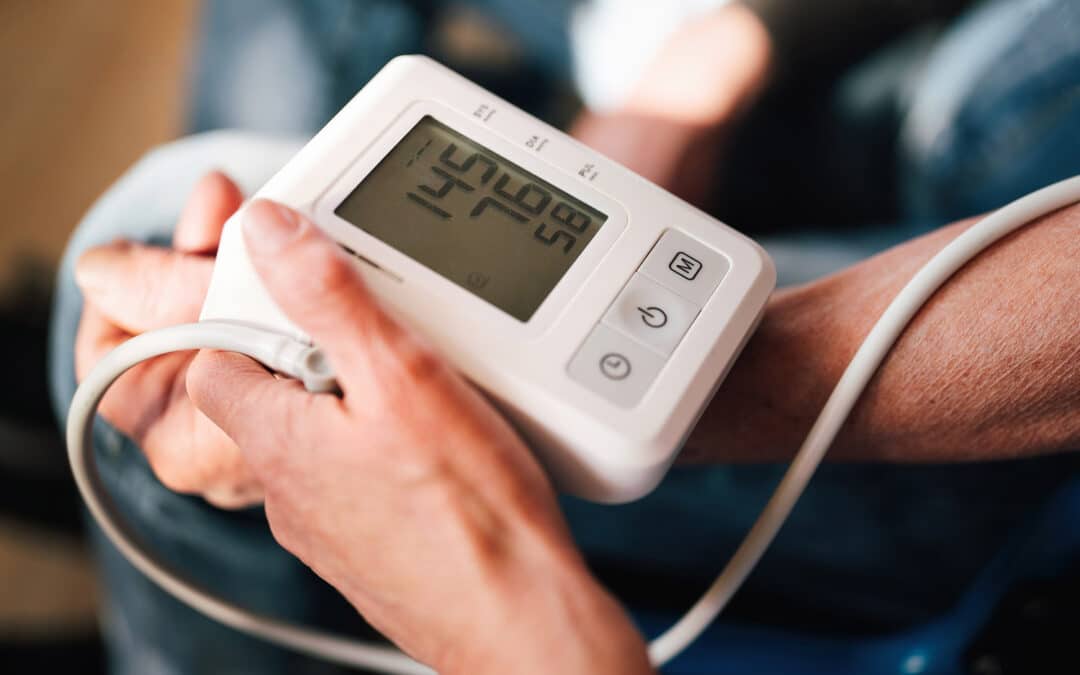Heart disease remains the leading cause of death worldwide, accounting for over 17 million deaths each year. Despite the prevalence of heart disease, many people are unaware of their risk factors and may not realize the importance of regular heart screenings. At Vital Heart & Vein, we believe that regular heart screenings are essential for maintaining heart health and preventing heart disease. In this article, we will explore who should get heart screenings, why they are essential, and how Vital Heart & Vein can help.
Why Are Heart Screenings Important?
The heart is one of the most vital organs in the body, responsible for pumping blood and oxygen to all other organs and tissues. However, the heart is also susceptible to a wide range of conditions that can affect its structure, function, and performance. Here are some reasons heart screenings are important:
Lower your risk of heart disease
Heart disease is a serious condition that can be improved—and even prevented—by making lifestyle changes. But how would you know if you need to make changes if you didn’t know if you were at risk for heart disease? That’s where heart screening tests come in. The best way to prevent heart disease is to understand, monitor, and manage your risk factors. At your heart screening appointment, you’ll learn important information like:
- Whether or not you have any risk factors for heart disease
-
- Your current state of heart health with factors such as:
- Body mass index (BMI)
- Cholesterol
- Blood pressure
- Blood glucose (sugar) level
- Immediate steps to take to lower your risk of heart disease
- Your current state of heart health with factors such as:
Stress takes a toll on your heart
Stress can play a leading role in our everyday lives, affecting everything from our relationships and behavior to our sleep and overall wellbeing. One way your body responds to stress is by releasing hormones that make your heart beat faster and blood vessels constrict (become narrower), raising your blood pressure. Constant (chronic) stress makes your heart work too hard for too long. And when your blood pressure rises, so do your risks for having a stroke or heart attack. Heart screening tests are important, especially for stressed-out individuals, because they help monitor how your heart is doing.
Some cardiac conditions are asymptomatic
Another reason why heart screenings are important is that some conditions, like high blood pressure and high cholesterol, can be asymptomatic–meaning you won’t necessarily know if you have them. These conditions can lead to catastrophic results (especially for older people), so it’s crucial that you get regular heart screenings to monitor these numbers and hopefully lower them over time.
Understanding your heart
Regular heart screenings can help you stay on top of your heart health. They arm you with valuable information that can help determine if you need to make lifestyle modifications and empower you to take steps today toward a better, heart-healthier tomorrow.
Who Should Get Heart Screenings?
Heart screenings are recommended for individuals who have risk factors for heart disease or who are experiencing symptoms such as chest pain, shortness of breath, or fatigue. Risk factors for heart disease include:
- High blood pressure
- High cholesterol
- Diabetes
- Smoking
- Family history of heart disease
- Obesity
- Sedentary lifestyle
- Age (men over 45 and women over 55)
If you have one or more of these risk factors, it is important to talk to your doctor about getting a heart screening. Additionally, if you are experiencing symptoms such as chest pain, shortness of breath, or fatigue, you should seek medical attention immediately.
Types of Heart Screenings
Heart screenings are medical tests that evaluate the heart’s structure, function, and performance to identify any abnormalities or risk factors for heart disease. There are several types of heart screenings available, each with its benefits and limitations, and how often they should be performed based on age, gender, family history, and other risk factors. Some of the most common heart screenings include:
Calcium Tests
Calcium scoring tests use highly accurate CT scans to check for small deposits of calcium in your coronary arteries. These deposits indicate plaque buildup that can lead to clogged arteries — and put you at increased risk for heart attack and heart disease. With the results from a calcium scoring test, you and your doctor may be able to care for your heart more proactively to prevent heart attacks and other problems.
Electrocardiogram (ECG)
An ECG is a non-invasive test that measures the electrical activity of the heart to detect any irregularities or abnormalities. The test involves attaching electrodes to the chest, arms, and legs, which record the heart’s electrical signals. An ECG can detect various heart conditions, including arrhythmias, heart attacks, and heart failure. It is a quick and painless test that can be performed in a doctor’s office or clinic.
Echocardiogram
An echocardiogram is a non-invasive test that uses ultrasound waves to produce images of the heart’s structure and function. The test involves placing a transducer on the chest, which emits sound waves that bounce off the heart and create images. An echocardiogram can detect various heart conditions, including valve disorders, heart failure, and congenital heart defects. It is a safe and painless test that can be performed in a doctor’s office or clinic.
Stress Test
A stress test is a diagnostic test that evaluates how well the heart functions during physical activity. The stress test involves exercising on a treadmill or stationary bike while the heart’s activity is monitored. A stress test can detect various heart conditions, including coronary artery disease and arrhythmias. It is a safe and painless test that can be performed in a doctor’s office or clinic.
Cardiac Catheterization
Cardiac catheterization is an invasive procedure that involves inserting a thin tube (catheter) into a blood vessel in the groin or arm and guiding it to the heart. The test can evaluate the heart’s structure, function, and performance and detect various heart conditions, including coronary artery disease, valve disorders, and congenital heart defects.
Cardiac Imaging Tests
Doctors often use imaging tests to see what’s going on inside your body. For example, if you have a cut or bump that’s bothering you and your doctor wants to diagnose the situation, an X-ray may be used to see if there is any damage beneath the surface of your skin. But for problems inside your body, like heart issues, cardiac imaging may be necessary for your doctor to get the full picture and begin treatment.
Different types of cardiac imaging tests include:
- Chest X-rays
- Cardiac CT scans
- Cardiac MRIs
- Angiograms
- Stress testing
Cardiac imaging tests help your doctor diagnose conditions such as chest pain (angina), look for signs of disease, check the structure and function of your heart, see how blood flows through your arteries, and determine what additional tests may be necessary.
What steps do I take to get a heart screening?
To stay as healthy as possible, we recommend that you get the right tests at the right time. Vital Heart & Vein can help you keep a pulse on your heart health. We recommend that you:
- Make regular check-ins and checkups with your primary care doctor a priority. You and your primary care doctorcan monitor your overall well-being plus your heart health, and you can discuss heart disease risk factors or any concerns you have.
- Ask your primary care doctor about specific heart tests and screenings, and whether you’re a good candidate for them. If your doctor does recommend certain tests or screenings, some may be done the same day, or you might need to make an appointment for a different day. Also, it’s important to remember that you’re always in control of your health care; if something doesn’t feel right to you when it comes to your care options, don’t be afraid to speak up!
- If you start to notice any symptoms of heart trouble, tell your doctor so they can work with you to create an action plan. That may include connecting you with a cardiologist sooner rather than later.
- If you’ve been diagnosed with a chronic condition such as high blood pressure or high cholesterol, or if you have a family history of heart disease, it’s probably time to seek care from a cardiologist. A cardiologist specializes in maximizing your heart health.
How Vital Heart & Vein Can Help
Regular heart screenings are essential for maintaining heart health and preventing heart disease. At Vital Heart & Vein, we understand the importance of these screenings and offer a wide range of heart screening services to help our patients stay healthy. Our experienced cardiologists and healthcare professionals use the latest technology to diagnose and treat heart conditions. If you have risk factors for heart disease or are experiencing symptoms such as chest pain, shortness of breath, or fatigue, don’t hesitate to call us to schedule an appointment. By taking control of your heart health today, you can reduce your risk of heart disease and enjoy a healthy, active lifestyle. Contact us now to schedule your heart screening and take the first step towards a healthier heart.




